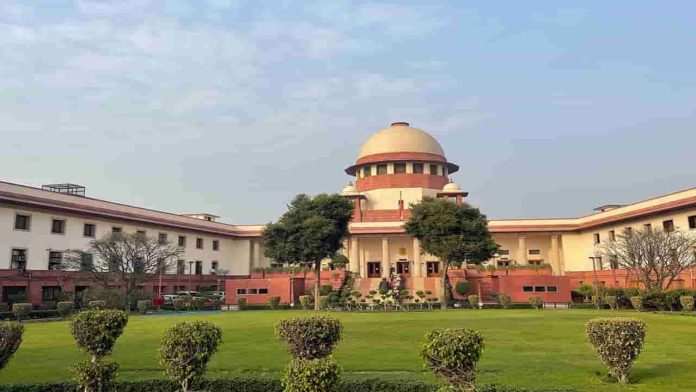The Supreme Court on Wednesday continued hearing for the fifth day on a bunch of petitions filed against the Karnataka High Court verdict, which upheld the state government’s ban on wearing of hijab by Muslim girl students in some schools and colleges of Karnataka.
The Bench comprising Justice Hemant Gupta and Justice Sudhanshu Dhulia today heard submissions made by Senior Advocate Aditya Sondhi, representing an intervenor and Senior Advocates Rajeev Dhavan and Huzefa Ahmadi, who appeared for the petitioners.
Dhavan said the rationale in the Kerala case given by the Board was that to prevent malpractices in the AIPMT exam. But here, in Karnataka case, there is no rationale given.
He further said the fact that large number of women were wearing hijab bonafidely has been ignored. Hijab across the board was permitted in public places. He wondered as to what was the basis to say hijab cannot be in class room and was opposed to public order.
He said, “When you say you can’t allow burqa in school, it is reasonable, because you want to see the face. But what reasonable objection can be there to the headscarf?
“The test is one of proportionality. The test is to take the least invasive approach. One of the suggestion made by pupils was that they will wear the headscarf with the same colour as the uniform.”
Dhavan referred to a Kenyan decision. He said what was important in cases like this was a certain degree of sensitivity, without which one can’t find a common ground.
What was required was an inclusive policy after due discussion. None of this has taken place as far as Karnataka is concerned.
He said as on July 1, 2021, no uniform was prescribed for PUCs. Then there was a campaign against hijab. This is what this case is all about. The campaign “Hijab Must Go Come What May”.
Dhavan referred to grounds raised in petition.
Stating that proportionality meant taking the least restrictive alternative, he cited the case of Modern Dental College. He said this was not a ‘Yes’ or ‘No’ issue. The Senior Advocate asked what were the obligations on the authorities concerned to bring about a measure of inclusiveness and apply the least restrictive approach.
“In my respectful submission, there was no foundation in Government Order (GO) against Hijab, it is probably to target Muslims and Muslim women particularly, and it violates Articles 14 and 15 (of the Constitution). This kind of targeting is not permissible in Constitution,” Dhavan concluded.
Another counsel asked whether he can clarify to the bench if there is any doubt on what is “farz”.
Justice Gupta asked him to wait for his turn. “Don’t be restless”, Justice Gupta told him.
Senior Advocate Huzefa Ahmadi began his submissions by raising the point on fraternity.
He said as per the circular, it was to develop fraternity, but it was the anti-thesis of fraternity.
The Senior Advocate raised his second point, asking what was the legitimate state interest.
The Senior Advocate further said that the legitimate state interest was in encouraging education, especially among minors. Was it legitimate state interest to adopt a restriction, which would encourage drop outs?
He said the The Karnataka Education Act promoted unity in diversity and the circular was against the objective of the Act. He then alleged that the circular was indirectly discriminating, although it was facially neutral.
As per Ahmadi, “What this Court held in Sabarimala reference was that it was not sure which test to apply for essential religious practice – whether the text, or whether the view of a leader or whether every religious practice will be accepted. So today, we are not clear on which test.”
Justice Dhulia said, “If we go that way, that is essential religious practice, then probably you are right.”
Ahmadi said, “Which is the test to be applied is a bit of conundrum in the light of the reference, that is why I say it should await the decision on reference.
Now coming to the core of my submission. The Preamble of the Constitution and Article 51A(f).
Ahmadi then read from the Preamble, “Fraternity which assures the dignity of individual”. He pointed out that dignity of an individual was put before the Unity of nation.
The Senior Advocate referred to fundamental duties under Articles 51A(e) and 51A(f), to promote harmony and the spirit of common brotherhood… to preserve composite culture.
He then referred to Dr B.R. Ambedkar’s speech on Preamble.
Case title: Fathima Bushra vs State of Karnataka


